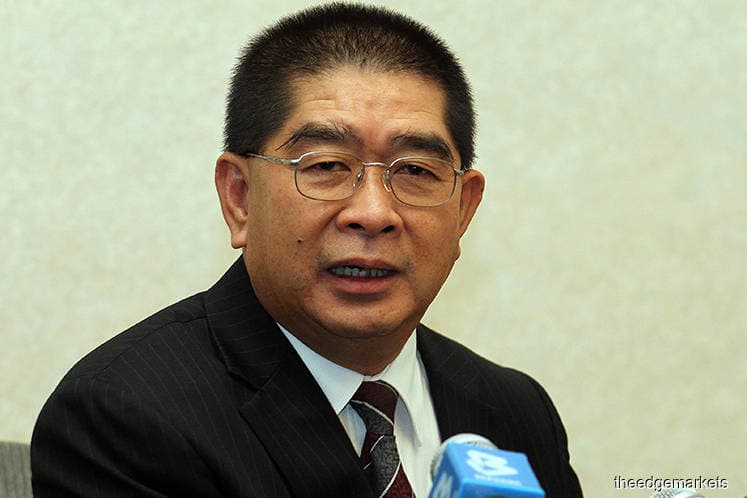
KUALA LUMPUR (Oct 12): Malaysia is not grappling with an oversupply of electricity despite approving a slew of new power plants, said Energy, Green Technology and Water Minister, Datuk Seri Dr Maximus Johnity Ongkili.
The electricity market “is not in the surplus and there is no excess capacity", he told reporters after opening the International Green Technology and Eco Products Exhibition and Conference Malaysia.
“Malaysia is maintaining a reserve margin of at least 25% at the moment. For us, that must be protected,” Ongkili said in response to a question on the country's electricity generating capacity, which is expected to be boosted by the upcoming implementation of solar and independent power plant projects.
“Maybe Malaysia can stretch it (reserve margin) by another 3%. We also do a 20-year forward planning of planting up (new capacities),” he said, adding that his ministry, via the Energy Commission, has identified several projects to develop new capacities in the next 10 years.
Data from the commission reveals that Malaysia's electricity reserve margins stood at 28.8% in 2016, up from 22.5% in 2015, and is expected to rise to 29% by end-2017.
It also shows that new power generating projects added 2,825.5 MW into the country's electricity grid in 2016. This is expected to expand by an additional 9,171 MW between 2017 and 2023, via 12 committed power projects.
"Renewable energy is engrained in TNB's future energy planning and thinking. But for Sabah, a lot of work needs to be done, because it is the first time the state is dealing with renewables," Ongkili added.
To ensure future reliability of electricity supply, Ongkili said Malaysia is expected to import some 100MW of electricity from Laos by January 2018.
"It will be sourced from green energy, and I am in the midst of ironing out several details with my counterparts in Laos and Thailand, before we ink the power purchase agreement," he added.
"If necessary and if the situation demands for it, we could get up to 300 MW of electricity per day," he said.
However, that may not be needed in the immediate term, because it takes a relatively short time to harvest energy from new power-generating capacity via renewable sources such as solar.
"Planting of say 30MW capacity via solar could be done within around six months. Hence, why (the ministry) has been pushing for initiatives (to boost) solar energy extensively," Ongkili said, referring to two initiatives — large scale solar plants and net metering programmes — that are complementing the feed-in-tariff programme.
"Two cycles of large scale solar capacities have been released and a total of 402MW has been awarded," he said. He added that the ministry is now in the process of awarding the next large scale solar capacity cycle.